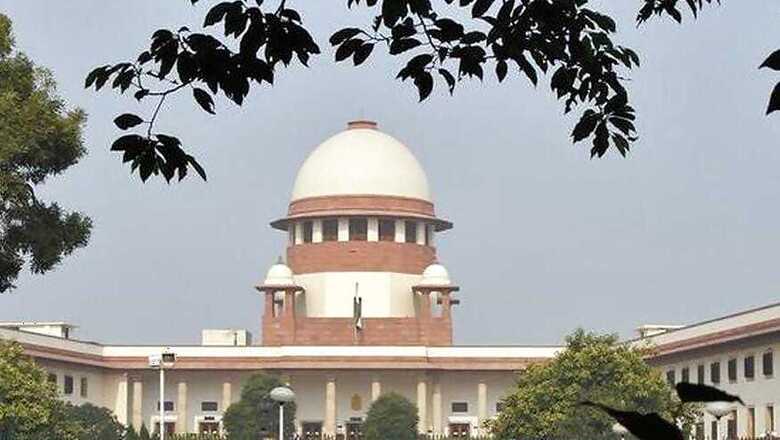
views
New Delhi: The Supreme Court on Friday rejected a 10-year-old rape survivor’s plea to allow her to undergo an abortion. The girl is 32-weeks pregnant.
The order came after the court-appointed medical board told the apex court that abortion is not in interests of the girl or the life inside her.
The court further asked the Solicitor General to consider having permanent medical boards in all states to examine such cases. In response, the Union government said it will inform SC whether it will have permanent medical boards in all states during pendency of amendments to the Medical Termination of Pregnancy Act (MTPA), 1971.
The plea was filed when the rape survivor was in her 26th week of pregnancy, igniting the "life versus life" debate and the legal dilemma that surrounds it.
Section 3(2)(b) of the MTPA bars abortion after the 20th week. The MTPA did not explicitly lay down why the cut-off was kept at 20 weeks, but the doctors would suggest the lawmakers were perhaps moved by the fact that a woman starts feeling movements of the baby around this time. Further, the signs of life of the foetus would become visible in sonography by that time.
Notwithstanding the absence of any legal or parliamentary explanation for the 20-week deadline, it is also argued by some that a late abortion may help sex-determination and thus increased threats of female foeticide, besides putting the mother's life in danger.
Undoubtedly, abortion laws are one of the most debated subjects across the world where 'pro-life or pro-choice' are the broad decisive principles, guided by religious, social, ethnic, moral and legal factors.
China allows abortion till 28 weeks while the UK, Greece, Singapore and the Netherlands permit it till 24 weeks. All these countries rely upon their health technology and seek to put the interest of the mother of paramount importance when they let her make a choice.
Section 5 of the MTPA permits termination of pregnancy post 20 weeks, but it comes with strict riders, dissuading resorting to the exception clause in the law.
Section 5 of the Act limits this reprieve to situations where “the termination of such pregnancy is immediately necessary to save the life of the pregnant woman”.
In 2007, when a woman in 22nd week of her pregnancy visited Dr Nikhil Datar in his Mumbai clinic, with a devastating sonography report, Datar was left perplexed.
The report showed major chances that the baby could be born in a vegetative state or with severe abnormalities. But Datar couldn't help her medically in the wake of the 20-week deadline.
The doctor, who could clearly see the legal conundrum, however, decided to take up the cause legally and he became the first petitioner in a PIL before the Bombay High Court, challenging the validity of Section 3 (2)(b) of the MTPA.
The High Court declined to interfere with the law or to interpret the legal provision in a manner that would encompass health of a woman under the term "life" in Section 5.

















Comments
0 comment